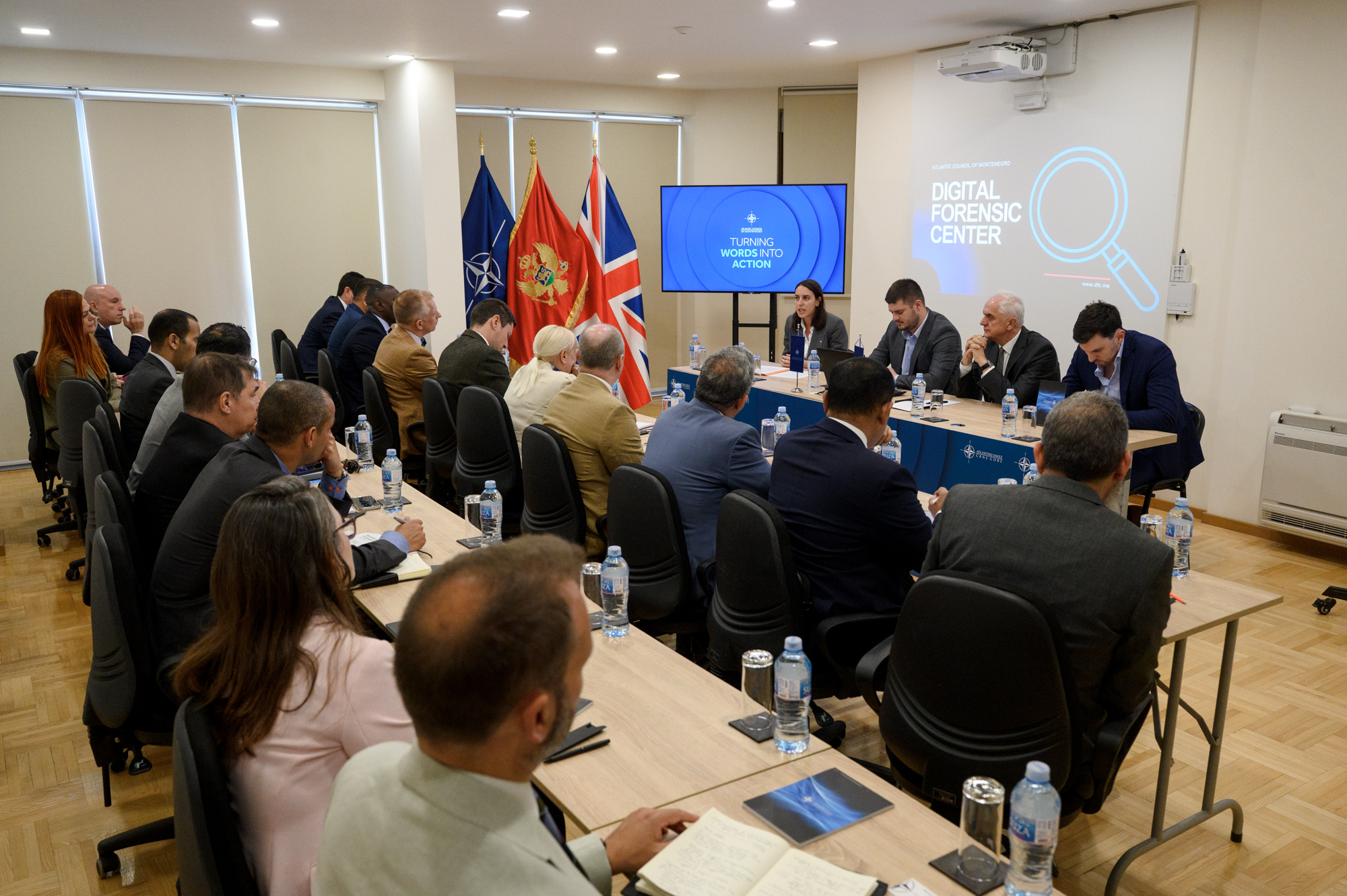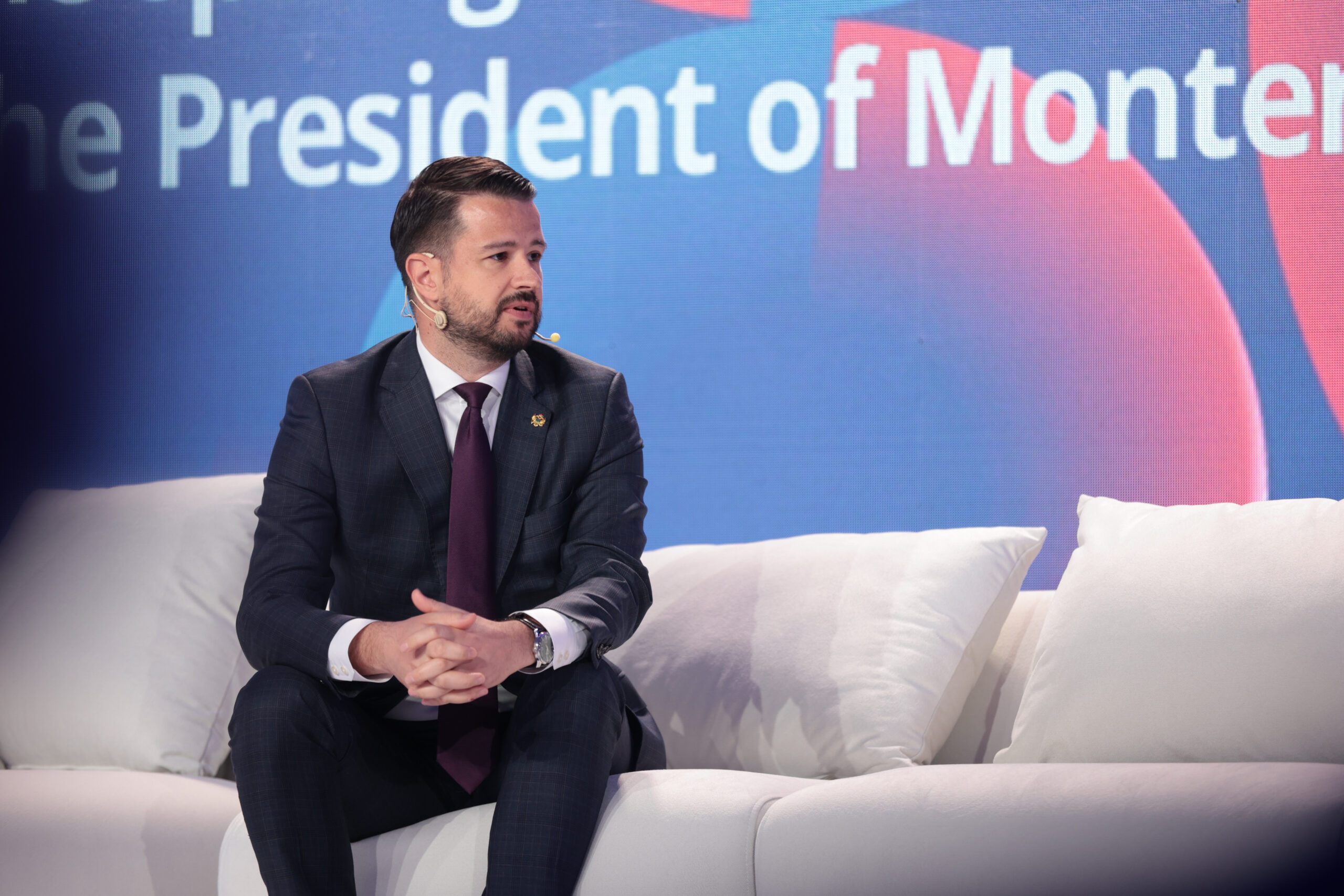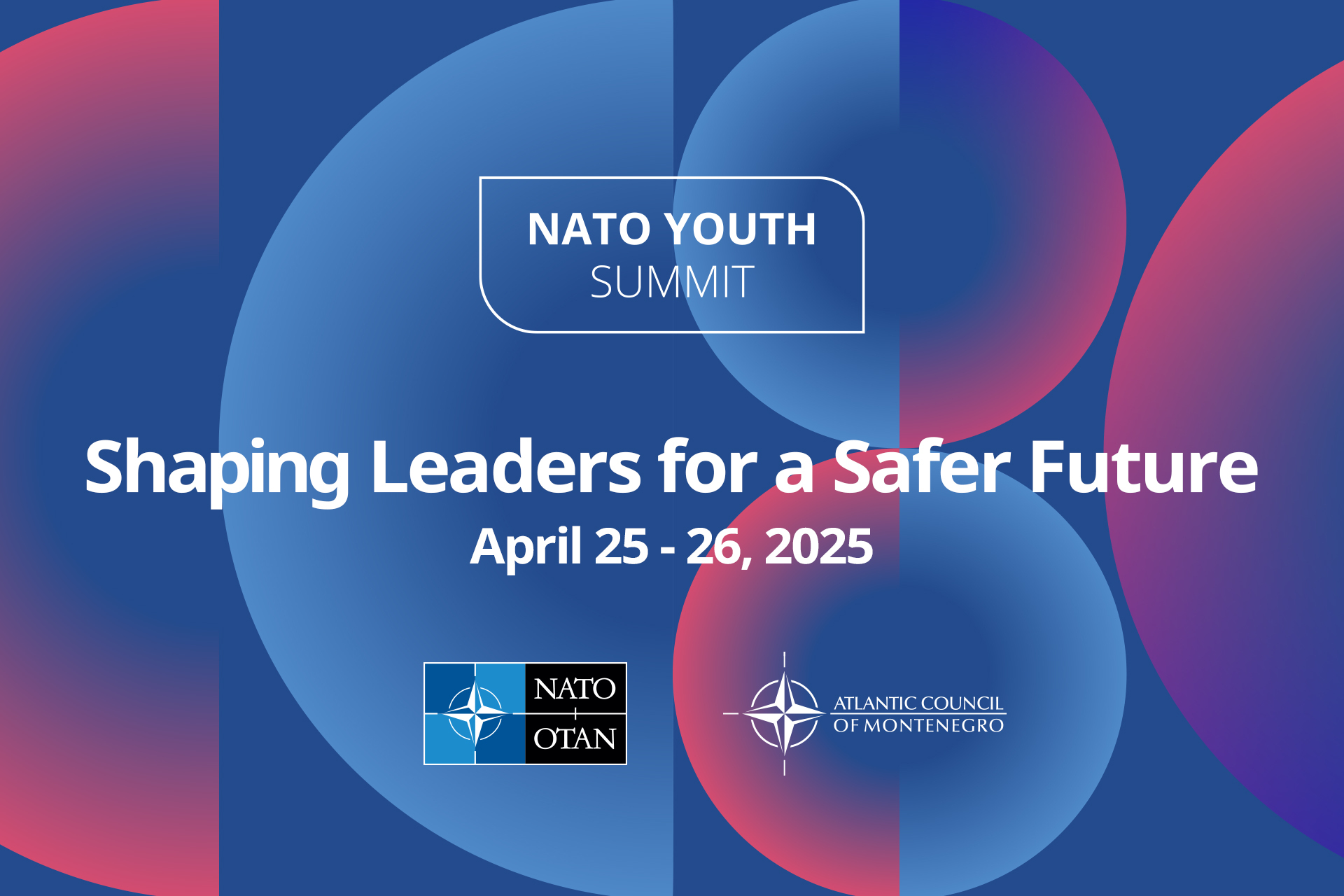STALLING THE PROGRESS TOWARDS THE EU WOULD STRENGHTEN THE NATIONALISM IN THE REGION
The President of Montenegro, Milo Đukanović and his counterpart Hashim Thaçi, the President of Kosovo, concluded that strategic and political struggles are still present in the Balkans, nationalism is still alive, and is a consequence of historical lagging behind of the region, while the stalling on the path to the EU integration will be a generator of nationalism growth.
The two presidents participated in the panel discussion ”Presidential discussion: In the mind of a leader” at the 9th To Be Secure (2BS) Forum in Budva.
Speaking on the topic of the greatest concerns of a leader in the region, Đukanović said that the main preoccupation, but also daymare and nightmare is the question of ”how to achieve what we have committed ourselves to as a strategic task.”
He evaluated that two powerful movements dominate the Balkan area.
”The first one is led by the governments aspiring to bring their countries to the EU and NATO, while the other one, not so powerless and not to be underestimated, is the one wanting to preserve the status quo. There are the reasons why they are against that movement. This is not only a Balkan issue, but the European and Euro-Atlantic issue as well” said Đukanović
It is clear, as he said, that Montenegro is a leader on the path towards the EU and it is important to strengthen the regional cooperation.
”It is clear now, at least in regard to Montenegro, that we are at a turning point to return the region to its European home. The solution lies in economic and democratic development. The strategic direction is the return to European home and value system, and the aim is to achieve the European quality of life”, stated Đukanović.
Asked how he perceives the future of the European Union (EU), Đukanović stated that Europe will have to redesign itself.
‘’There is no better consolidation of Europe than its union, which signifies the stability and usage of all the resources that will strengthen our competitiveness. Crises showed that there are serious flaws in the EU architecture’’, stated Đukanović.
He is of opinion that the path will further lead to the recognition of the importance of Europe’s unification, ‘’which is of significance for Europe and our Euro-Atlantic partner”.
”This will have to include a certain reprofiling of Europe. I hope that flaws in Europe’s architecture will not overshadow the vision, and the vision is the Europe united in terms of competitiveness and stability”, emphasized Đukanović, addding that strengthening of Euro-Atlantic integration is the key.
We must aspire to functional democracy, which is inexistent if certain actors abstain from political life, said Đukanović.
“Please, let me explain this. Currently, we are the witnesses of the “repertoire on the scene” which includes a diverse destruction of democracy in this region. There is also an attempt of the opposition which wants to question the independence of Montenegro as well as particular decisions that Montenegro made, such as the Kosovo independence issue. They are desperately trying to present Montenegro as a dysfunctional country through the obstruction of institutions”, said Đukanović.
Đukanović stated that the reason of nationalism in the Balkans lies in ‘’historical lagging behind of the region’’.
“We all were sure that we combatted the idea of a high-state nationalism in the region, after the Dayton Agreement. But we did not, as we can see. The idea of nationalism is still alive. The fact that some forms of these ideas are approved by particular international instances should concern us, since it was not the case earlier”, said Đukanović.
It is not the time to play on the small fields, he said speaking about integration. One has better odds on the bigger field.
“Many are not ready to play at the Wembley Stadium, but it is not time to play only at the Sutjeska or Budućnost Stadium. One has better odds when playing on the bigger field. The third parties interfere and the problem occurs. We are the witnesses of the rebirth of one problem and if we thought that the problem from 1995 is solved, our opponents are clearly assuring us that it is not true. Our place is in the wider integration context”, said Đukanović.
To the question of how to successfully build multiethnic democracy, Đukanović stated that he unwaveringly believes in such concept, since every other alternative seems regressive.
”Every other approach is the attempt to ignore reality. Major players appeared on the global scene. Take a look at our neighborhood, it is not wise to look at each other through weapons’ scope. The solution is to build partnership. Montenegro is a multiethnic community”, said Đukanović, stating that any other concept would be an introduction to ethnic cleansing.
He explained that the concept of multiethnic democracy must be the foundation of our policy and must equally be supported by those who are more developed than us.
‘’Even beyond Montenegrin borders, there are detours from this policy. The European elections are not as catastrophic as it was expected, but, there was a turn to the right which may be encouraging for some in the region”, said Đukanović.
While commenting the dialogue between Belgrade and Pristina, Đukanović said that the years will be lost if we miss this opportunity and the best example for that is the decades-long lagging behind of the North Macedonia in a dispute with Greece.
”If I were an actor in this, which luckily I am not, I would try to find a solution by respecting the Badinter’s formula. Every deviation brings a certain danger. Serbia and Kosovo are not the only ones demarking, the demarcation between Serbia and Croatia is ahead of us, as well as Serbia and Bosnia, Bosnia and Croatia”, Đukanović pointed out, stating that the most crucial thing right now is the return of Aleksandar Vučić, President of Serbia and Hashim Thaçi to the negotiating table.
Kosovo President Hashim Thaçi said that official Prishtina is working hard on improvement of relations, and the main challenge is the acceleration of the EU accession process.
He said that he is happy to be president to the citizens who are mostly pro-EU oriented, and that Kosovo is a successful story.
”Obstacles can be overcome, but we cannot return to a position of daily political populism. After the membership of Montenegro in NATO and Prespa agreement, organizing of Kosovo Army and good communication that we are establishing with the neighbors in the region, I am optimistic”, said Thaçi.
However, as he admits, the majority of dissatisfaction comes from the EU, which is slowing down the processes.
“There is no any progress when it comes to the attitude towards Kosovo, success and achievements are not recognized, especially when it comes to the issues of Visa liberalization. The citizens have a hard time understanding it”, Thaçi said.
When it comes to nationalism, he says that we all have learnt something from the past, where the nationalism is leading and what kind of tragedies and consequences it has left in the Balkans.
‘’The region is not in the Dayton period and Serbia and Kosovo are not in the Rambouillet period. The region has changed for the better, but, the more the EU lags behind, the more nationalistic ideas will be in Kosovo. If Kosovo remains isolated, the rise of nationalism will occur, which is not in accordance with the Euro-Atlantic values. The EU perspective should be closer to the citizens. Otherwise, the conflict will be in focus, not the reconciliation. People will rightfully wonder if the EU wants Kosovo“, said Thaçi.
He said that the creation of the Republic of Srpska in Kosovo would destabilize it, admitting that the dialogue of the two countries is in crisis. The specificity of relations between Serbia and Kosovo due to the hard past affect this, but also, the difficulty to bring the final decision on the normalization of relations.
‘’In Serbia, that is a very delicate issue due to the false Kosovo Myth which is imposed on Serbia. This is the best moment to solve the problem. We are going back to the state of frozen conflict which may escalate. The agreement will bring peace to the whole Western Balkans“, Thaçi believes.
The President of Kosovo said that the territory exchange between Kosovo and Serbia was not at all on the agenda. He also mentioned the demarcation between Montenegro and Kosovo, stating that he was harshly criticized for this, but, this did not leave any negative impact on Montenegro, nor Kosovo.
Serbia led a very aggressive campaign in order to prevent the international consolidation of Kosovo, he said.
„Obstacle for the UNESCO membership is the result of the Serbia’s campaign. I do not advocate for the Palestinian model for the consolidation of Kosovo“, said Thaçi.
He announced the information that more than 70 percent of citizens want the agreement with Serbia which would be final and legally binding, in order to preserve the spirit, character and multiethnicity of Kosovo.
Speaking about his vision of the EU, Thaçi said that he wants to see the new approach towards the Western Balkans after the European elections.
‘’When it comes to the other ideas related to the Islamic fundamentalism, here on Kosovo we have traditional Islam, tolerant Islam which implies coexistence with others. We have the coexistence of the Islam, Orthodoxy and Catholicism“, Thaçi said.
In spite of traditional Islam in Kosovo, the identity of that country is European, he said.
’’The elements of extremism were not successful in 1998 or 1999. Nobody was tolerated. That is why we gained trust of the international community“, said Thaçi with the evaluation that Albanians in the region are fair people who think in a constructive manner.
‘’And that is an excellent accomplishment. There are no leadership deficits. These two leaders, Đukanović and Thaçi are creating history“.








